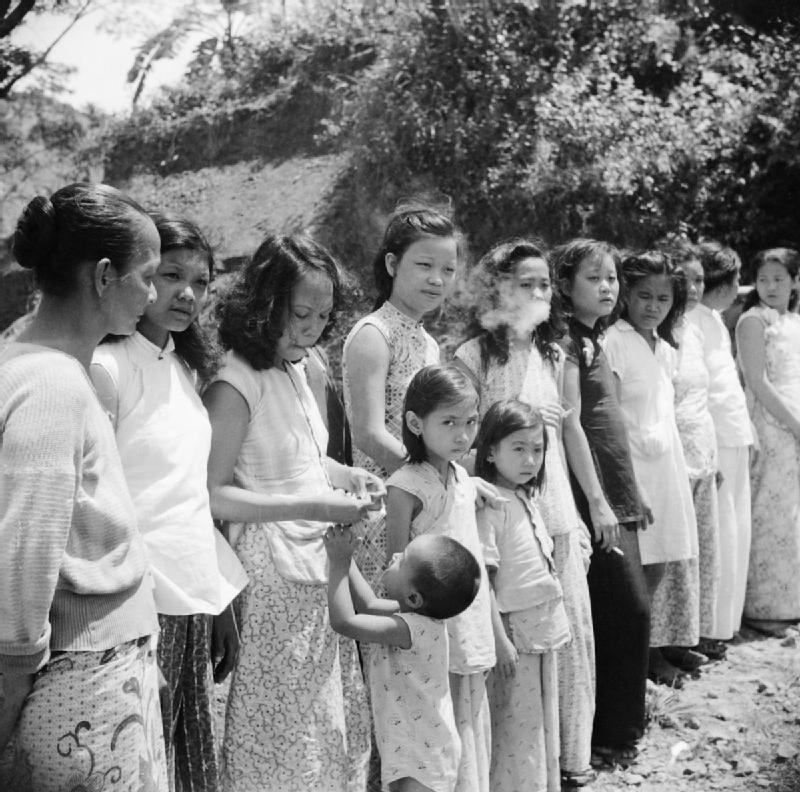It has been more than 70 years since Japan’s 35-year formal occupation of the Korean peninsula ended, but issues of reparations and memory surrounding the crimes against humanity committed by the Japanese government during this time period are still contested. It is estimated that up to 200,000 women, mostly from Korea, were forced into sexual slavery during WWII. These young “comfort women” were abducted from their villages or persuaded to leave with the false promise of work, only to be imprisoned in comfort stations and sexually exploited by Japanese soldiers.

Chinese and Malay girls taken by Japanese soldiers to serve as ‘comfort women.’ Image from Wikimedia Commons
Last December, the governments of Japan and South Korea reached a landmark agreement on the deep-rooted issue of comfort women. The Japanese government gave 1 billion yen ($8.3 million) to surviving comfort women and issued a formal apology. In exchange, both Japan and Korea agreed to avoid criticizing the other within the international community and also remove all monuments in memory of the victims, such as the statue erected on the pavement opposite the Japanese embassy in Seoul in 2011. The Japanese Prime Minster Shinzo Abe publicly stated, “I think we did our duty for the current generation by reaching this final and irreversible resolution before the end of the 70th year since the war.” This agreement raises important questions about public memory and justice. Can crimes against humanity ever truly be resolved? To this day, former SS officers are still tried in court for crimes they committed in Nazi Germany, and there is an International Holocaust Remembrance Day. How important is public memory and continued rhetoric to the prevention of future crimes?
Despite both governments deciding the issue had been resolved, the agreement continues to be criticized by those most affected by the situation. Former comfort women were not consulted before the agreement was reached between Japan and South Korea. Their voices had been silenced yet again. The Japanese government refers to the 1 billion yen agreement as a humanitarian gesture rather than reparations in order to avoid legal responsibility. Former comfort woman, Lee Ok-sun has stated, “It is as if the Japanese government is waiting for us to stop speaking out and die.”
Surviving comfort women are currently in their 80’s and 90’s and are still persevering to see justice within their lifetimes. The Japanese government continues to claim the agreement included the removal of all commemorations and memorials for comfort women, including a statue outside of the Japanese embassy in Seoul. What happens when crimes against humanity are erased from public memory? People throughout South Korea and the world continue to advocate for the presence of memorials, days of remembrance for victims, and education about sexual slavery during the Japanese occupation. Will these women’s voices finally be heard?
Alexandra Steinkraus is an undergraduate student at the University of Minnesota, pursuing a degree in Global Studies with concentrations in East Asia and Human Rights and Justice. Her areas of academic interests include media representations of crimes against humanity, global refugee policy, sociology of foreign media in North Korea, and the United Nations.

Comments